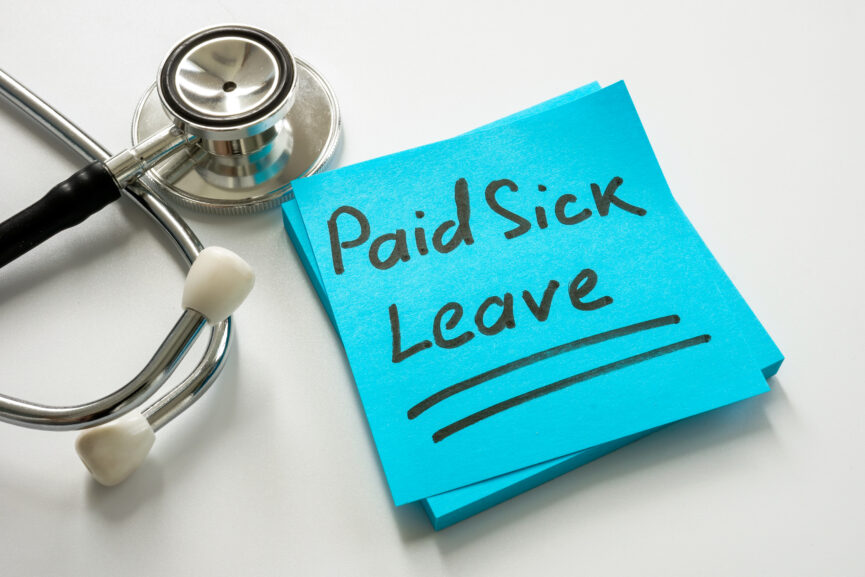The Critical Illness Protocol is available to employees who become critically ill and because of that illness require an extended period of sick leave. The Civil Service HR Policy Division published a Critical Illness Protocol most recently in September 2021. The Critical Illness Protocol recognises that employees may require the continued support of their employer during a period where an employee becomes incapacitated because of a critical illness or serious physical injury. In those circumstances an employee who has exhausted their ordinary entitlement to sick pay under their terms and conditions of employment may apply for a period of extended paid sick leave. Should an application under the Critical Illness Protocol be successful, an extended period of paid sick leave is allowable under the Critical Illness Protocol which is calculated as follows: –
- A maximum of 183 days on full pay in the previous rolling one-year period.
- Followed by a maximum of 182 days on half pay in the previous rolling one-year period.
- Subject to a maximum of 365 days paid sick leave in the previous rolling four-year period.
Prior to determining whether an individual may be granted extended paid sick leave under the Critical illness Protocol, the employee must be referred by the employing organisation to an Occupational Health Service for medical advice. Thereafter, the granting of extended paid sick leave is a decision made by management within the Civil Service in accordance with the Critical Illness Protocol guidelines. The Civil Service HR Policy Division published the Critical Illness Protocol most recently in September 2021. One of the stated aims of the HR Policy Division is “to provide Local HR units with a quality policy advisory and support service for HR units within the Civil Service.”
What legal remedies are available if an application for critical illness has been refused?
In circumstances where an application for critical illness has been refused, there is an appeal mechanism within the employing organisation. An employee may also appeal the medical advice received by the employing organisation. The final decision is made by management within the employing organisation having taken into consideration any medical advice received. Importantly, the decision to award critical illness made by the employing organisation must be made in accordance with fair procedures and within the constitutional parameters of the Constitution itself. The High Court decision in Nolan -v- Irish Prison Service & anor [2015] IEHC 101 clarifies the position in respect of the right to challenge a refusal in the context of a scheme provided by the Civil Service. The applicant in this instance was injured while performing her duties with the employing organisation and applied under the occupational injuries scheme made pursuant to a Circular issued by the Department of Finance. The circular provided that any period of “absence certified as having arisen from an occupational injury is discounted when calculating the total amount of sick leave that a person has.” The applicant applied for certification under the scheme and was refused by the employing organisation.
Following the refusal by the employing organisation under the scheme, the applicant challenged the decision to refuse by way of Judicial Review proceedings before the High Court. Justice Baker outlined the following in the course of her judgment, “that if a privilege is to be conferred by an administrative decision of an organ of State, that organ of State must act fairly, within constitutional parameters and those arising from the rule of law, the various Conventions and the Irish Human Rights Act, 2003 and of course the Constitution itself. Judicial review lies to challenge any decision made by an administrative body when that administrative body is deciding on whether a particular applicant is entitled to a privilege under a scheme of which that applicant is a part.” The Court set aside the employing organisation’s decision to refuse the employee’s application under the scheme.
Critical Illness Protocol and Legal Remedies.
Collier Law Solicitors recently acted on behalf of an applicant who had been refused under the Critical Illness Protocol which was reported in the Irish Times. Please click on the attached link to access the Irish Times article: https://bit.ly/3T7Zr66 . Finally, a decision to refuse Critical Illness may also be subject to Judicial Review by the Courts. Importantly any appeal or review of a decision must accord with due process and fair procedures. In circumstances where a decision to refuse critical illness has been made by the employing organisation, this may be set aside by the Courts in certain circumstances.
Anyone wishing to discuss their application either for extended paid sick leave under the Critical Illness Protocol or under any alternative schemes may wish to read the above cited decision in Nolan -v- Irish Prison Service & anor [2015] which you may do by accessing www.courts.ie. Should you wish to discuss any of the above matters, please get in touch by contacting us at (01) 833 8147 or alternatively you can email at [email protected]. Telephone and Video call consultations are available by appointment.

